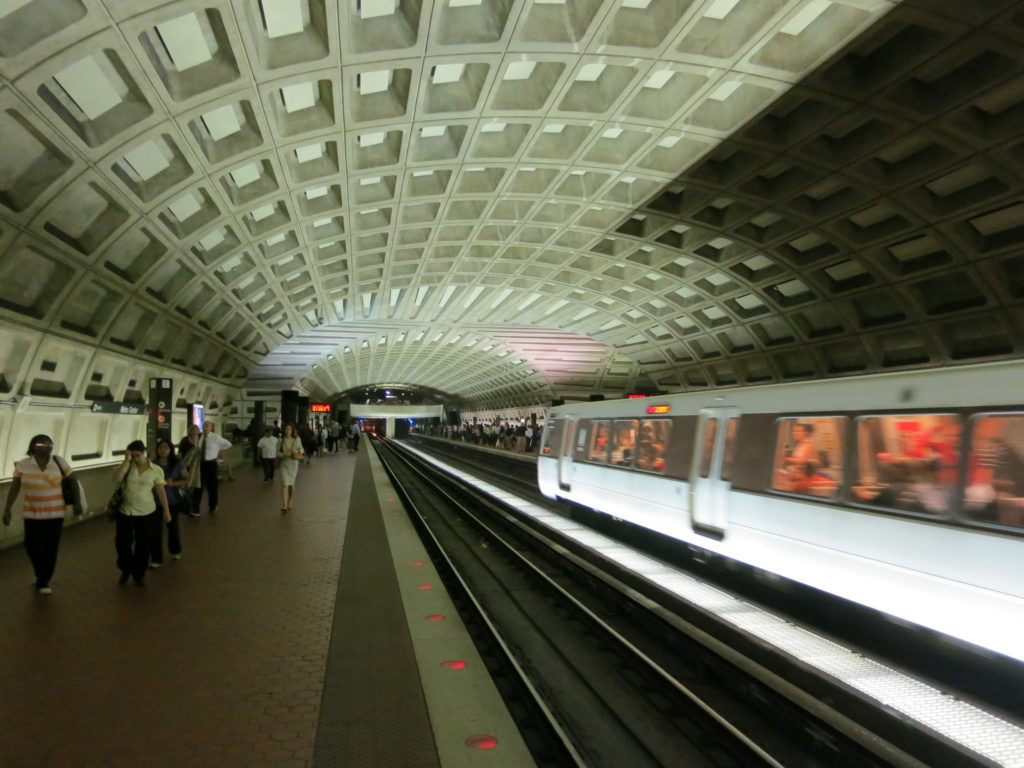Recently, Speaker of the House Kirk Cox (R-Colonial Heights) and Republican Caucus Chairman Timothy Hugo (R-Fairfax) penned an opinion piece posted in The Washington Post on why the Republican majority in the House of Delegates voted down the measure to raise the taxes of Virginians to pay for the much-needed fixes to the Washington-area Metro system.
Delegate David Reid (D- Loudoun) proposed a tax increase for which would have instituted a statewide “hotel tax” that was originally imposed only in Northern Virginia, among the counties within the Northern Virginia Transportation Authority (NVTA).
House Bill 1356 stated that the state transient occupancy tax will, “Expand[s] the 2% regional transient occupancy tax,” the funding from which will be allocated so that, “Thirty-five percent of the revenue generated from the tax shall be used to fund the Washington Metropolitan Area Transit Authority (WMATA), and the remaining amount shall be used to fund transit and transportation projects throughout the Commonwealth.”
“Our 40-year-old Metro system is the third-busiest transit system in the country and integral to our region’s transportation system. Metro is a big part of the regional economy and a lifeline for many. Hundreds of thousands of citizens wake up every day and use Metro to get to work, to the doctor and to the grocery store.
Unfortunately, Metro has been faltering. Regional bickering and short-term political decisions left Metro without the funding and oversight it needs to thrive. The system is less reliable and less safe than riders deserve. As riders abandon Metro, other transportation modes are more stressed, making the financial shortfalls even worse. Metro’s problems ripple across our already-difficult transportation environment.
After years of neglect by local government and regional leaders, Metro’s bill is due. A December 2017 report by former U.S. transportation secretary Ray LaHood, requested by then-Virginia Gov. Terry McAuliffe (D), found that the Washington Metropolitan Area Transit Authority needed additional funding for capital projects for long-deferred maintenance and replacement projects. LaHood recognized that under the current leadership of WMATA General Manager Paul J. Wiedefeld, Metro’s slow turnaround has begun, but many challenges remain.
This year, the Virginia General Assembly did its part. As we stated from the beginning of this process, we would reform Metro, we would fund Metro and we would do it without raising taxes. Our plan dedicates hundreds of millions of dollars to Metro as part of a comprehensive package that includes key reforms, such as a 3 percent annual operating expense cap, increased oversight and critically needed changes to depoliticize WMATA board governance. If these and other reforms aren’t implemented, Virginia will withhold funds from Metro.
Most important, the funding and reform package as originally passed by the House 94 to 1, provides Virginia’s share of Metro funding without raising taxes on hardworking Virginians.
The truth is families and businesses in Northern Virginia already carry a hefty tax burden. Combined with the higher taxes for transportation passed in 2013, the tolls many people pay and rising gas prices, it’s hard to ask people in this region to pay more.
Instead of increasing taxes on home sales and hotel stays, our plan prioritizes existing transportation funds to fulfill Virginia’s regional commitment to Metro — similar to Maryland’s approach. This approach was made easier by recent changes related to Northern Virginia’s road projects.
For example, McAuliffe used a public-private partnership for the Interstate 66 “Outside the Beltway” (OTB) improvements. As a result, regional funds are no longer required to support that construction. The improvements to the Route 28/I-66 interchange are funded as part of the public-private partnership. And the Northern Virginia Transportation Authority benefited from concession payments totaling nearly $500 million from the private company developing and operating the OTB toll project.
Taken together, these two developments provide nearly $800 million more for the NVTA to use for other regional transportation projects: roads. This is in addition to funding being raised through the regional sales and use tax.
Also worth noting is that WMATA sent a letter to the NVTA withdrawing a funding request of $96.5 million, citing the recent actions of the Virginia General Assembly.
The funding package approved by the General Assembly leaves the NVTA with hundreds of millions per year in road funding. Much of that can be used for bonding, and multiple bond-rating agencies say the changes will not affect the NVTA’s bonding ability.
Combined with the actions of Maryland and the District, we have an opportunity to improve the Metro system. It will take the leadership and hard work of many to reverse the decline of Metro’s ridership. But ultimately, a reliable Metro system will reduce highway congestion and provide transportation options for Northern Virginians. This outcome is a win-win for the commonwealth.
When you look at the whole picture, it’s clear that Virginia is taking the right approach. Asking families and businesses to pay higher taxes for Metro is wrong, especially when they’re already paying high tolls (as much as $40) on I-66 inside the Beltway. The legislation passed by the General Assembly allows Virginia to meet its obligation to WMATA and guarantees that significant resources are available for regional road construction projects while ensuring that residents and businesses are not burdened with higher taxes.”
Fortunately, House Republicans were able to hold back the wave of tax increases.
“Like Maryland’s Metro funding plan, my [House Bill 1539] uses existing funds,” Hugo said.
For the entirety of the 2018 General Assembly session, Republicans held back almost $800 million in tax increases on hard-working Virginians. As Cox and Hugo outlined, there are better ways to accomplish goals than government alone.

